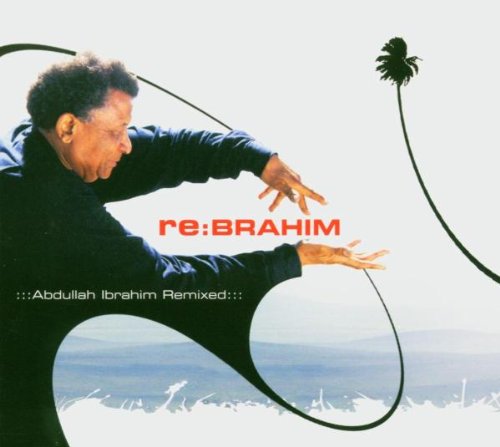The music of Abdullah Ibrahim is revered far and wide as not only the modern signature sound of his native South Africa, but as new small and large ensemble extensions of his hero Duke Ellington. Always self-professed as more a griot or storyteller than a musician, Ibrahim has always made music that appeals to a larger audience than mainstream or contemporary jazz. That the remixers of the digital electronic village wanted to take his music and embellish it with hip beats, synth washes, and samples is not a surprise, and the material they have selected shows a deep understanding of his discography without picking his greatest hits. Re:Brahim is an interesting collection of music that at times works quite well, in other instances is smothered by the bold additions, and sometimes simply doesn’t work musically, but perhaps does on the dancefloor.
Philipp Winter contributes three reproductions, adding organ, vocals, and synthesisers with DJ Explizit overpowering the original horn chart of “Calypso Minor,” goes for an acid jazz space odyssey approach with Dave Geene on “The Call,” and utilizes echoes and fades with jungle inferences beautifully on the big-band version of “Mindif.” German techno group Motorcitysoul work the 6/8 rhythm of “Damara Blue” into a wonderful adaptation with complementary Fender Rhodes electric piano and hand drums. The famous “Blues for a Hip King” retains the original piano line of Ibrahim, as Kinderzimmer Productions blends industrial percussion samples. The most impressive remix is “Did You Hear That Sound?,” enhanced in an orchestral manner. Toshio Matsuura is the master sculptor, adding Shuichiro Sakaguchi’s Freddie Hubbard like bright trumpet blasts, a second piano line played by Mikio Endo, and a joyous, sorcery flavored sampled vocal chorus alongside one of the heaviest contemporary drum and bass lines ever conceived. DJ Spooky’s trio mix of “Mindif” is simpler, with cymbal washes, scratches and howling beats, while Stefan Rogall’s reinvention of “Ishmael” adds a second bassline, a dance beat, and bears little resemblance to Ibrahim’s original theme. A mixed bag of sounds that certainly contemporizes the highlife and kwela music that inspires Ibrahim’s personalized sound in progressive jazz, this CD can easily stir a debate as to whether the remixes enhance or diminish the quality of his music. The listener can be the ultimate judge as to whether a second volume is warranted.
